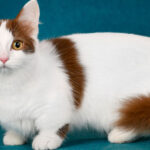Cat owners are all too familiar with the curious nature of their feline companions, especially when it comes to food. You might be enjoying a creamy cup of yogurt, and suddenly, your cat is right there, whiskers twitching, wanting a taste. But is this human snack safe for our feline friends? The short answer is yes, cats can eat some types of yogurt, but it’s not quite that simple.
While yogurt might seem like a healthy treat, it’s important to understand the nuances before offering it to your kitty. Let’s delve into the world of cats and yogurt, exploring the potential benefits, the risks, and how to make informed decisions about your cat’s diet.
The Nutritional Appeal of Yogurt (For Humans, Not Necessarily Cats)
You might wonder if yogurt could be a healthy supplement for your cat, considering its nutritional profile for humans. Yogurt is known to be a good source of protein, calcium, and B vitamins like B2 and B12. It also contains probiotics, beneficial bacteria that aid in digestion.
However, while these nutrients are beneficial, commercially available cat food formulated by veterinarians already provides a balanced and complete diet for your feline. Therefore, the nutritional advantages of yogurt are unlikely to be necessary or significant additions to a cat’s already healthy eating plan.
According to Dr. Renee Schmid, DVM, DABVT, DABT, a veterinary toxicologist at Pet Poison Helpline, yogurt isn’t a top-tier treat for cats, primarily due to potential digestive issues.
“Dairy products in general can cause GI upset in cats because most cats are lactose intolerant, causing mainly loose stool and vomiting,” Dr. Schmid explains. “Due to this, yogurt wouldn’t be high on the list of ideal foods to feed a cat.”
Lactose Intolerance: The Primary Concern with Cats and Dairy
The main reason yogurt might not be the best choice for your cat is lactose intolerance. Many cats, like humans, become lactose intolerant as they mature. Lactose is the sugar found in milk, and the enzyme needed to digest it, lactase, decreases in many cats after kittenhood.
When lactose is not properly digested, it can lead to gastrointestinal (GI) upset. The most common signs of lactose intolerance in cats include diarrhea and vomiting. Dr. Schmid advises that if your cat exhibits these symptoms within 8 to 12 hours after consuming dairy, lactose intolerance is likely the culprit.
While humans often consume yogurt for its probiotic content to aid digestion, cats generally do not require supplemental probiotics unless they are experiencing specific GI issues. If your cat is having digestive problems, it’s always best to consult with your veterinarian rather than self-treating with yogurt. Your vet can diagnose the underlying issue and recommend appropriate treatments, which might include cat-specific probiotics if necessary.
Safe Yogurt Choices for Cats: Plain and Unsweetened is Key
If your cat isn’t sensitive to dairy and you’re considering offering a small amount of yogurt, plain, unsweetened yogurt is generally the safest option. Before offering any yogurt to your cat, it’s crucial to carefully examine the ingredient label to ensure it doesn’t contain harmful additives.
Avoid flavored and low-calorie yogurts, as these often contain ingredients that are toxic to cats. Common dangerous additives found in yogurt can include:
- Xylitol: This artificial sweetener is extremely toxic to cats and can cause a rapid and dangerous drop in blood sugar, liver failure, and even death.
- Fruits like Grapes and Raisins: These fruits are known to be toxic to cats and can cause kidney failure.
- Chocolate: Chocolate contains theobromine and caffeine, both of which are toxic to cats and can cause a range of symptoms from vomiting and diarrhea to seizures and heart problems.
- Citrus Fruits (Lemons, Limes, Oranges, Grapefruits): Citrus fruits contain psoralens and essential oils that can be toxic to cats, causing stomach upset and potentially more severe reactions.
- Coconut: While not as toxic as some other ingredients, coconut can still cause digestive upset in cats.
Portion Control: How Much Yogurt Can a Cat Eat?
Even if you choose a safe, plain, unsweetened yogurt and your cat tolerates dairy, moderation is essential. A tablespoon or less of yogurt is generally considered a safe treat to share occasionally. Remember that treats, in general, should not exceed 10 percent of your cat’s daily caloric intake.
However, Dr. Schmid emphasizes that due to the high prevalence of lactose intolerance in cats, it’s generally better to opt for cat-specific treats and avoid dairy treats altogether.
Your cat’s primary nutritional needs should be met through a balanced diet of veterinarian-recommended cat food. While a tiny lick of plain yogurt occasionally might not harm your cat, there are safer and more species-appropriate treat options available. Consider veterinarian-approved cat treats or even homemade cat treats designed specifically for felines to ensure your kitty enjoys a tasty snack without the potential risks associated with dairy.
Conclusion: Yogurt Should Be an Occasional Treat, If At All
In conclusion, while cats can eat yogurt, it’s not an ideal treat for most. Lactose intolerance is a significant concern, and many yogurts contain ingredients that are harmful to cats. If you choose to offer yogurt, opt for plain, unsweetened varieties in very small amounts, and always check the ingredient list carefully.
Ultimately, prioritizing your cat’s health and well-being means focusing on a balanced diet of cat food and choosing cat-specific treats over human snacks like yogurt. When in doubt about what’s safe for your cat to eat, always consult with your veterinarian.

